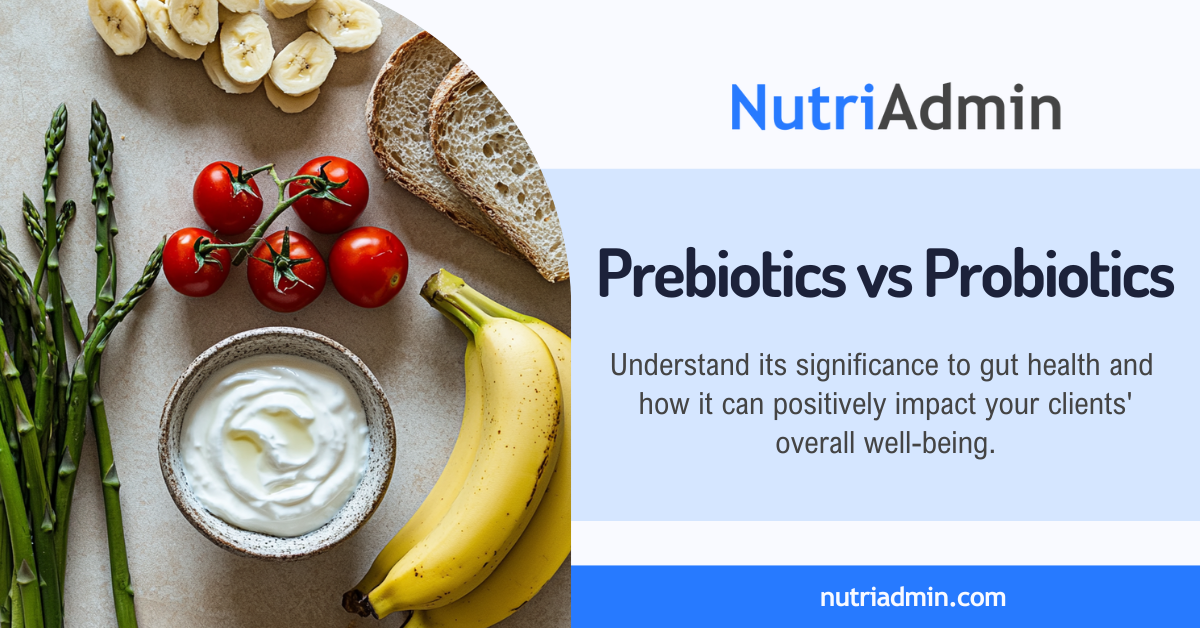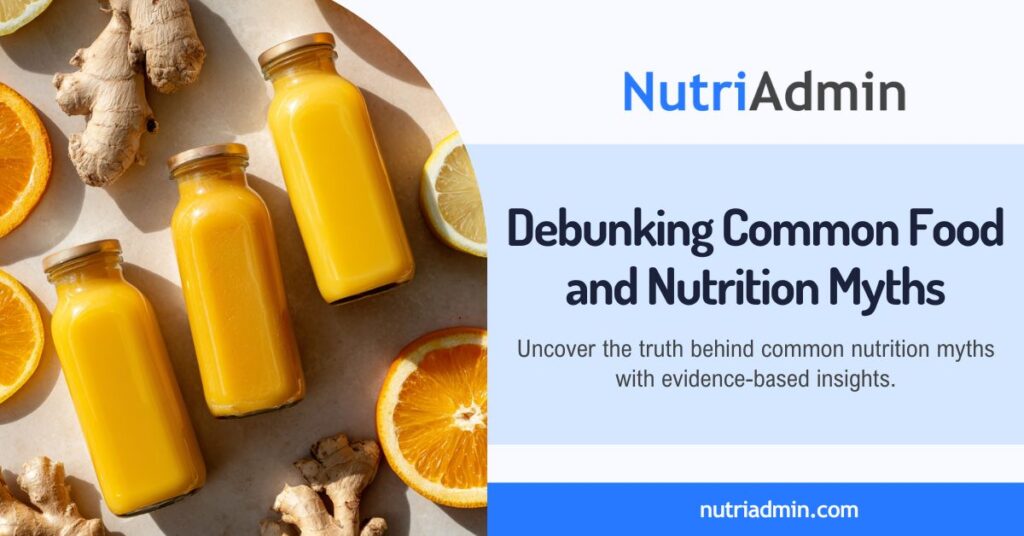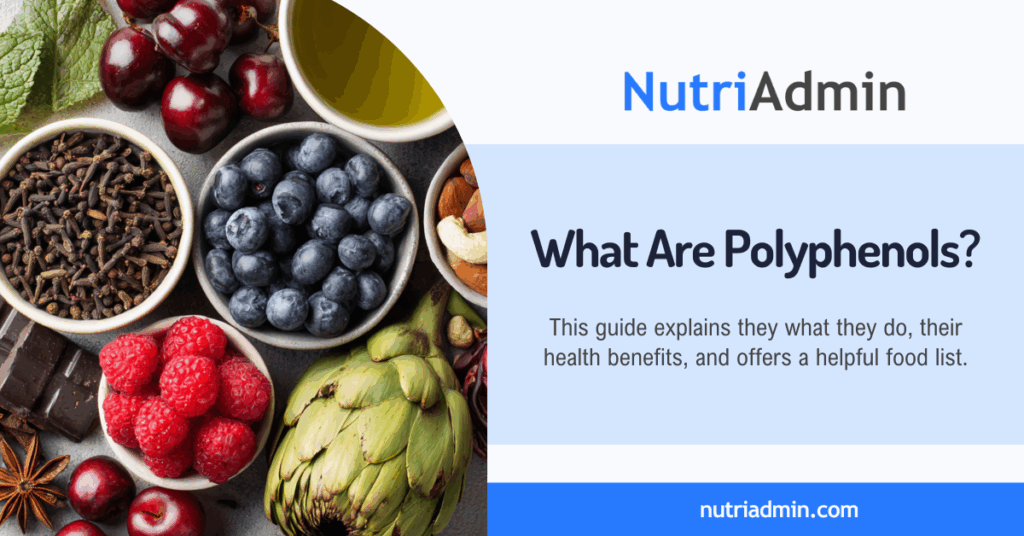Gut health plays a crucial role in our overall well-being, affecting everything from digestion to immune function. While both contribute to gut health, the difference between prebiotics and probiotics is significant. In this article, we will explore prebiotics vs probiotics, highlighting their unique benefits and roles in supporting gut health.
Difference Between Prebiotics and Probiotics
In this section, we will explore what prebiotics and probiotics are and their differences in terms of their nature, sources, and roles in gut health.
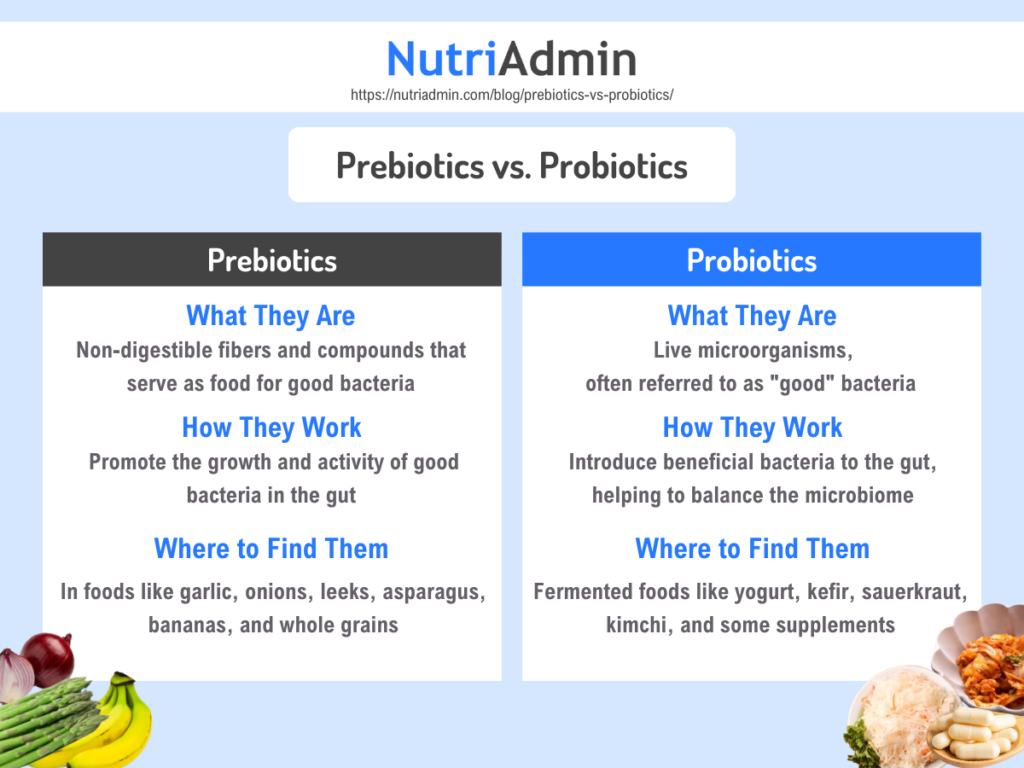
Probiotics
Probiotics are live microorganisms, often referred to as “good” bacteria, that provide health benefits when consumed in adequate amounts.
They help maintain or restore the natural balance of the gut microbiome. This is crucial for proper digestion, nutrient absorption, and immune function and may contribute to overall well-being.
Common strains include Lactobacillus and Bifidobacterium, which are often found in fermented foods and dietary supplements.
Prebiotics
Prebiotics are non-digestible fibers and compounds found in certain foods that serve as food for beneficial gut bacteria.
They help stimulate the growth and activity of probiotics, promoting a healthy gut microbiome.
Benefits of Probiotics vs Prebiotics
As we discussed the roles of probiotics and prebiotics, it’s clear they are beneficial for our gut microbiome. Beyond this, research indicates that they contribute to strengthening our immune system and may even have a positive effect on our mental well-being.
In this section, we will explore these benefits in greater detail, along with other advantages of incorporating probiotics and prebiotics into our diet.
Positive Effects of Probiotics
Immune System
Research shows that probiotics interact with immune cells in the intestines, improving immune balance and function. While studies on probiotics have been ongoing, few explore their effects on immune responses at a molecular level.
Probiotics impact immune responses by:
- Stimulating immune cells to produce cytokines and chemokines.
- Increasing IgA-producing cells, resulting in more secreted IgA.
These actions can enhance the immune system and help manage conditions like inflammatory bowel disease (IBD), irritable bowel syndrome (IBS), and infections.
However, the exact mechanisms of how probiotics interact with immune cells are not fully understood, and more research is needed to clarify these interactions.
Prevention and Treatment of Diarrhea
Several studies have explored the role of probiotics in managing diarrhea. These studies indicate that certain strains of probiotic bacteria can help shorten the duration of this condition.
Different probiotic strains can aid in the prevention and treatment of various types of diarrhea by bolstering the intestinal defenses against viruses, harmful bacteria, and toxins. Moreover, this helps maintain a balanced gut microbiota and restricts the growth of harmful microbes.
Despite the promising findings, variations in research methods and outcomes have raised questions regarding the overall effectiveness of probiotics in treating diarrhea.
Mental Health
Probiotics are beneficial bacteria that play a crucial role in enhancing mental health by promoting a healthy gut microbiome. This microbiome is intricately connected to our emotional well-being through what is known as the gut-brain connection.
Additionally, certain strains of probiotics produce neurotransmitters like serotonin, dopamine, and gamma-aminobutyric acid, all of which are vital for regulating mood. This is why the gut is often referred to as our “second brain.”
Research suggests that probiotics may help alleviate mild symptoms of anxiety and depression, making them a potentially valuable option for enhancing emotional health. However, further research is needed to determine which strains of probiotics are most effective, the appropriate dosages, and their direct impact on anxiety and depression.
Potential Benefits of Prebiotics
Enhance Calcium Absorption
Prebiotics can help improve the absorption of calcium in the lower intestines, contributing to stronger bones and improved skeletal health.
Weight Management and Better Food Choices
Prebiotics, such as inulin, may aid in weight management by promoting healthier food choices. In a study, participants who consumed 30 grams of inulin daily for two weeks were more likely to choose medium- or low-calorie foods over high-calorie ones.
Brain scans showed reduced activation in the reward network when they viewed high-calorie foods after taking the supplement. This suggests that prebiotics can help curb cravings for unhealthy foods, making it easier to opt for healthier options.
Lower Risk of Colon Cancer
Some research indicates that prebiotics may help protect against colon cancer. This effect is primarily due to the production of short-chain fatty acids from fermentation by gut bacteria and changes in gene expression within tumor cells..
Probiotics and Prebiotics Food Sources
When it comes to food sources of probiotics, fermented foods are at the forefront.
- Yogurt is one of the most popular sources, particularly varieties that specify live or active cultures.
- Kefir, a fermented milk drink, is another excellent source of multiple strains of beneficial bacteria.
- Fermented vegetables, such as sauerkraut and kimchi, not only add flavor to meals but also deliver a healthy dose of probiotics.
- Tempeh and miso, which are derived from fermented soybeans, provide a plant-based option for incorporating probiotics into the diet.
- Kombucha, a fizzy fermented tea, has gained popularity as a refreshing beverage that offers probiotic benefits.
On the other hand, prebiotic foods are rich in specific fibers that nurture beneficial gut bacteria that can be found in plant-based foods.
- Garlic, onions, and leeks are versatile ingredients in many dishes.
- Asparagus and artichokes also stand out as excellent prebiotic-rich vegetables.
- Whole grains such as oats, barley, and quinoa provide not only fiber but also essential nutrients.
- Fruits like bananas, particularly when they are slightly green, are well-known for their prebiotic content.
- Legumes, such as lentils, chickpeas, and beans, are a source of protein and prebiotic fiber.
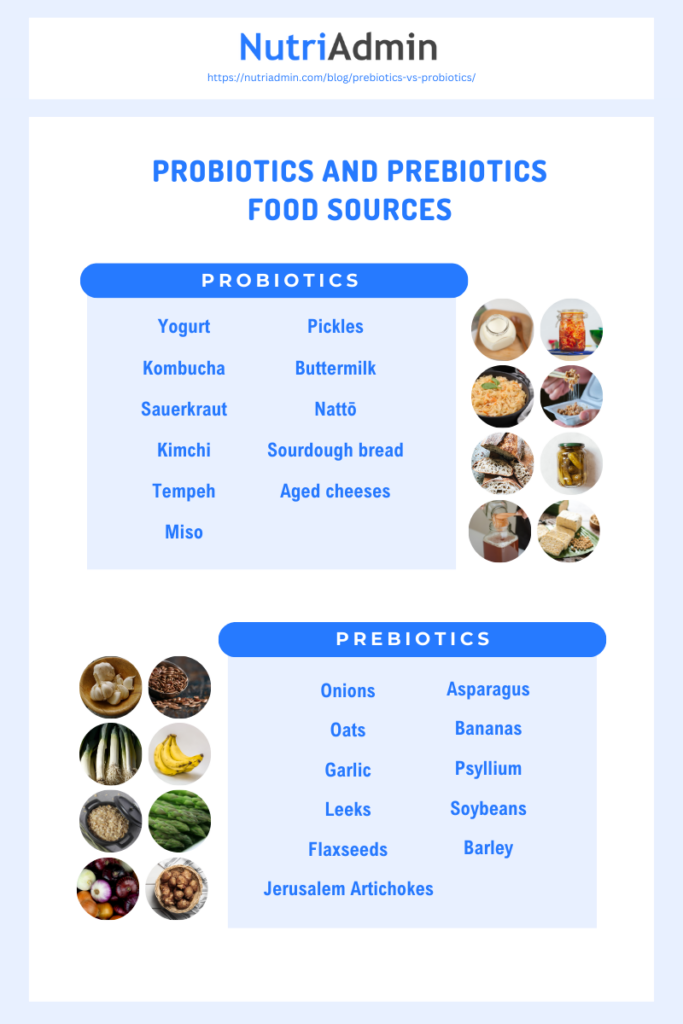
Synergistic Relationship of Prebiotics and Probiotics
The synergistic relationship between prebiotics and probiotics is an important concept in gut health and nutrition. Here’s an overview of how they work together:
- Nourishment: Prebiotics sustain probiotics by providing the necessary nutrients for their growth. When consumed, prebiotics reach the colon and are fermented by beneficial bacteria, promoting their reproduction and activity.
- Enhanced Survival: The presence of prebiotics can improve the survival rate of probiotics as they pass through the gastrointestinal tract. This allows more probiotics to reach the intestines, where they exert their beneficial effects.
- Balanced Gut Microbiome: Together, prebiotics and probiotics help maintain a balanced gut microbiome. Prebiotics increase the population of beneficial bacteria, while probiotics help suppress the growth of harmful bacteria, leading to improved gut health.
Synbiotics
Synbiotics are combinations of probiotics, which are beneficial bacteria, and prebiotics, which are fibers that nourish those bacteria. Together, they work to enhance gut health by supporting the growth of beneficial microorganisms in the digestive tract, ultimately improving overall wellness. Synbiotics can be found in foods that contain both probiotics and prebiotics, as well as in dietary supplements.
Feel free to download and use the gut-friendly recipes from NutriAdmin‘s recipe database below. You can add these to your clients’ meal plans or share them directly with them.
